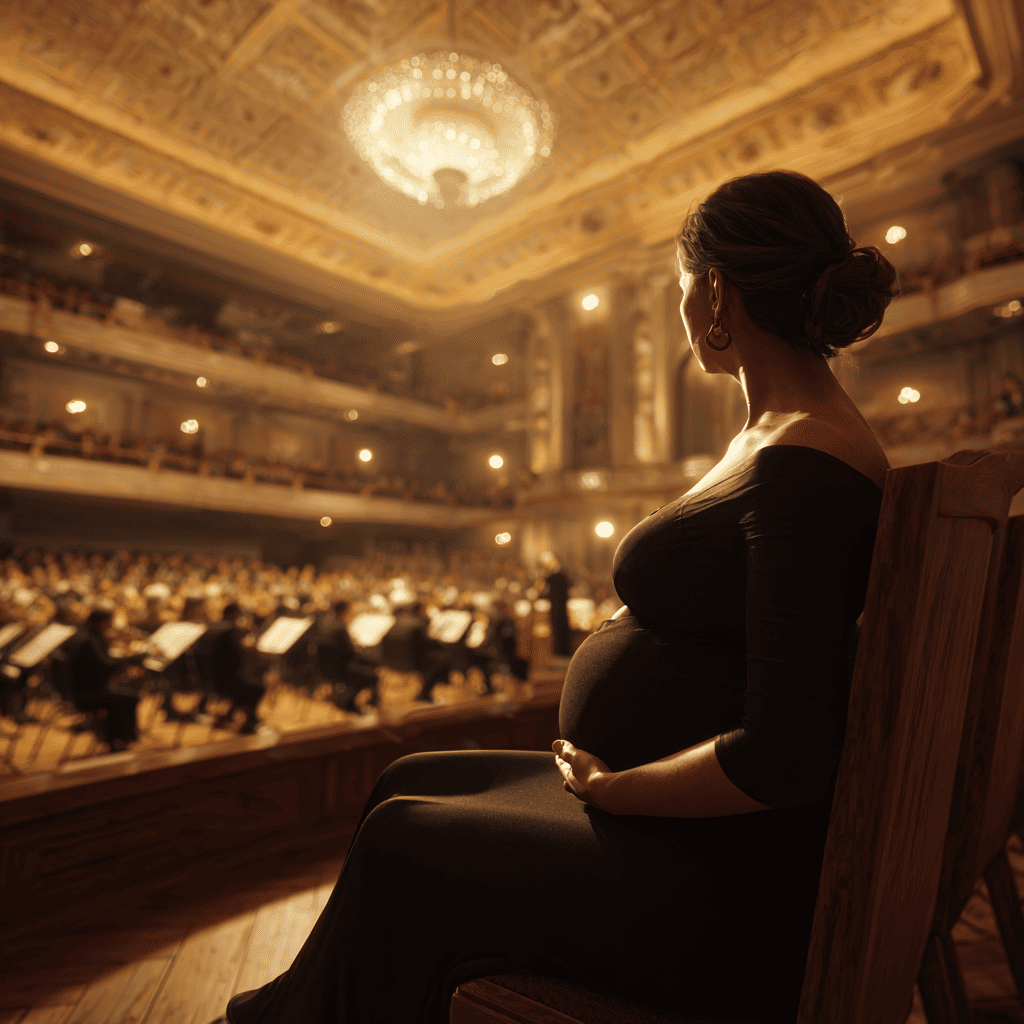
Emma, 29, had always loved orchestral music but rarely attended live concerts before pregnancy. At 24 weeks, her partner surprised her with season tickets to a chamber orchestra. After the first concert, she noticed she slept better and felt emotionally uplifted for days. Her OB-GYN, Dr. Thomas Dardarian, noted:
“Around 27–29 weeks, fetuses can start to hear sounds from outside the environment.”
Emma reflects:
“The live concert felt intimate—strings and woodwinds resonated through me. I felt calmer, and it seemed like my baby moved more gently afterward.”
Noor, 33, created a mini-project: attending five local classical concerts between her 26th and 32nd week. She kept a journal noting fetal movements and her own mood levels. After each concert she had longer periods of restful sleep and less anxiety. Her midwife, Dr. Maria L., commented:
“Music exposure, especially classical, has been shown to stabilize fetal heart rate and may support autonomic development.”
Noor’s son was born calm and responsive; she sometimes played the same pieces postpartum—and he responded by turning his head or stretching toward the music.
lara, 31, joined friends for a classical concert outing around 28 weeks. The live music and social time provided a welcome emotional uplift. Afterward, she noticed movement rhythms in sync with the piano. Her obstetrician, Dr. Marzena Jurczak-Czaplicka, explained:
“Sound travels through the abdominal and uterine walls, and reaches the fetus via bone conduction—fetuses hear best low-frequency sounds around week 20.”
Clara found that attending concerts—even seated ones in quiet halls—fostered joy, a sense of normalcy, and a soothing shared experience.
Research with 36 pregnant women exposed to “The Swan” and “Arpa de Oro” showed:
“Exposure to music resulted in more stable and predictable fetal heart rate patterns… which may stimulate development of the fetal autonomic nervous system.”
Such heart rate variability is a sign of healthy neural maturation.
Studies involving listening to classical music daily showed improved maternal mood, reduced anxiety, and better coping with childbirth pain. In Bosnia, pregnant women taught breathing and listened to classical music in the evening rated their childbirth pain significantly lower than controls—and showed fewer psychological symptoms postpartum.
Even attending concerts can uplift mood and reduce stress, helping lower cortisol levels and support maternal-fetal bonding via emotional resonance.
Yes—when done mindfully. Experts confirm:
Emma felt calmer and noted fetal movement syncing with live concerts. Noor’s structured pregnancy concert series led to better sleep and a responsive newborn. Clara discovered social connection plus auditory resonance—even subtle fetal responses to live piano.
Doctors like Dr. Thomas Dardarian and research teams in Mexico and Bosnia support the biological plausibility: classical music exposure can calm both mother and fetus, may support ANS development, reduce stress, and even ease later childbirth.
Attending concerts isn’t just cultural—it can be prenatal enrichment. And for those curious, diving deeper into music—studying or practicing—can transform music from background therapy into an active, intentional journey of bonding and development. You’ve read real stories and scientific quotes—now it’s your turn to invest your time in music.